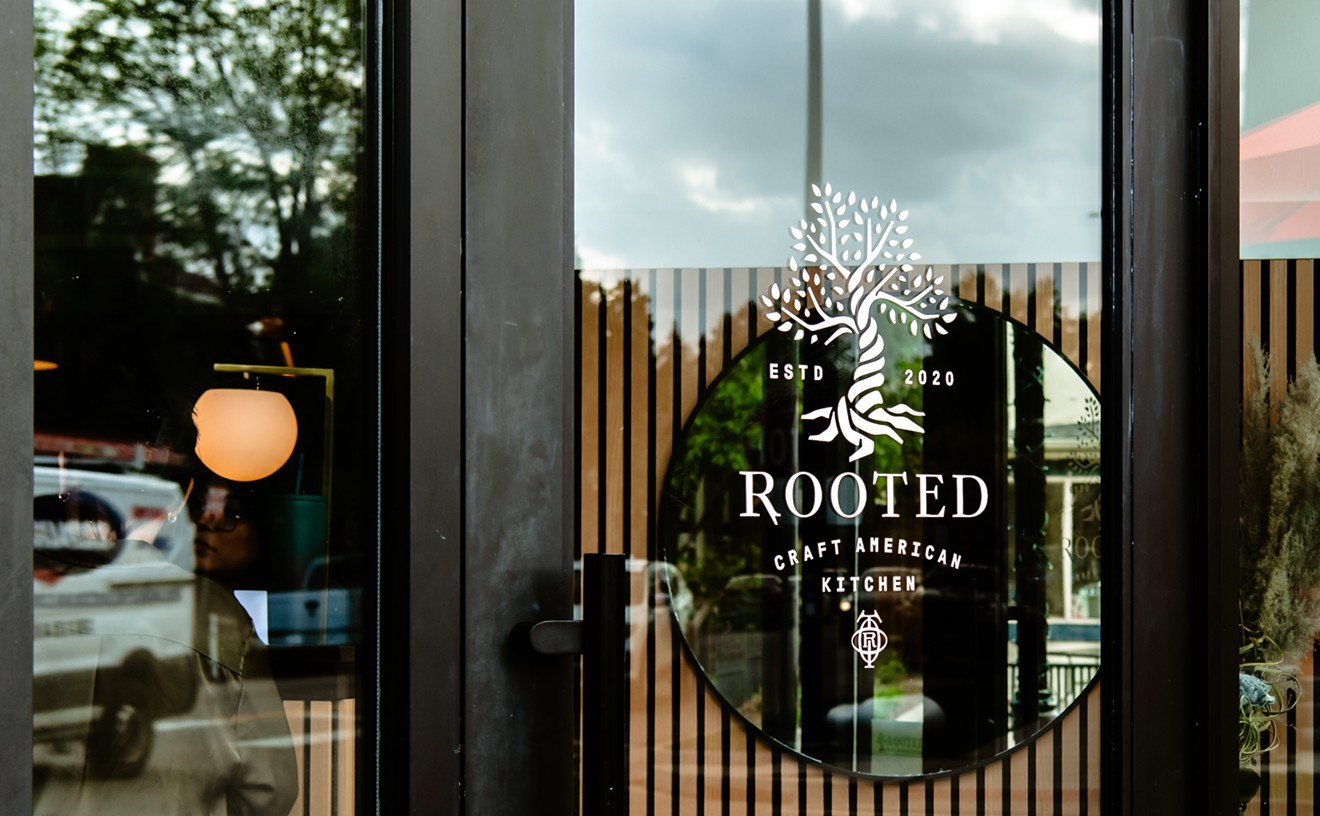But the Kelloggs' "caramel fun on a stick" is now doubling as an indicator of the lousy economy. "It could be the barometer, and we've finally hit bottom," Phil says. "We always thought these things were recession-proof, but they might be bordering on a luxury item today."
In 2002, Phil and his team cranked out 1.25 million of the caramel-dipped, rolled-in- "crunch" Granny Smiths that make Denverites daffy. This year, he says, they're selling at a rate 30 percent slower than last year. But even slow sales can't detract from the sweetness of a Daffy Apple. "That flavor between the caramel and the apple juice, that's the kicker, that's what does it," Phil says. "The Granny Smith is a nice, tart apple, and because our coatings are so sweet, with that crunch, they blend really well."
Better still, Daffy Apple coatings -- the traditional brown caramel and a red version with a hint of butterscotch that mimics a candy-apple appearance -- lack the adhesive, filling-removing properties that typify such treats. But the Daffy "crunch," a cereal-like mix of corn and soy, is what made the Daffy Apple unique when it was invented back in 1952 by the late George Smith. "Caramel and peanuts are a good flavor in a candy bar," Phil says. "But in an apple, the crunch adds something beyond what peanuts can do."
Smith trademarked the Daffy Apple name in 1953 and moved to Denver from Illinois shortly thereafter. He soon became a Johnny Appleseed for the treat, franchising Daffy outlets across the nation through the '60s. In the early '70s, Richard Bovey acquired the entire Daffy Apple franchise system. A year later, Bovey invented a machine that inserted sticks into pre-dipped apples, modernizing the industry.
Daffy Apple went through various hands before it was bought by Dick Schutt, Linda Kellogg's brother, in 1985. Ten years later, Linda and her son purchased the company, moving it to a new, larger location northeast of Denver. There the big draw is the original apple-dipping machine, recently updated by Phil. "This thing really cranks," he says.
A software designer by trade, Phil has used his computer skills and do-it-yourself savvy to double the performance of the machine, which now finishes 26,000 apples in an eight-hour period. "I do the repairs myself," he says proudly. "If you had to pay somebody to come and fix this every time, you'd be hard-pressed to stay in business."
For ten weeks each fall, an eleven-person crew keeps the machine humming. Two workers load picture-perfect, fist-sized Granny Smiths into revolving cups. The cups slip under a sensor, which triggers an automatic punch that stabs wooden sticks into each apple. The apples are automatically lifted and dipped into vats of red or brown caramel -- made from sugar, corn syrup, milk and "a few Daffy Apple secret items," says Phil -- and spun to remove any excess, then rolled across a tray filled with the corn and soy mixture. After that, they're dropped into another tray of "crunch" to coat the bottom, set on a cooling conveyor belt, then hand-packed by a staffer into single, twin or triple-packs.
The resulting apples are sold in major supermarkets across the state, as well as some specialty outlets. Their appeal is equal parts taste and tasteful nostalgia. "It's the kind of thing you'd buy at fairs or carnivals," Phil says. "Just a down-home, feel-good food item."
To boost sales, Phil is experimenting with a sort of deluxe Daffy, a giant Granny Smith cloaked in an extra-creamy caramel and dipped in crushed pecans. "We've got our recipe now," he says, showing off a prototype that's passed the test both for holding its shape and its pecans. If the test version becomes reality, the upscale apples will be drizzled in three kinds of chocolate and sold around Christmas and Valentine's Day. But Phil knows that venturing into nutty territory can be risky. "We did apples in peanuts one year," he recalls, "and our sales dropped 40 percent. People in Colorado like the crunch." (Daffy now sells bags of that crunch, as well as tubs of caramel and Daffy Apples, at www.daffyapple.com.)
And now that their Daffy Apple Farms is the sole surviving outlet for the original Daffy Apple, the Kelloggs want to keep loyal fans happy. "We have as many adult Daffy addicts as kids," Phil says. "You talk to anybody who's grown up in Denver, they'll tell you, 'I used to eat so many of these when I was a kid.' If something ever happened to the Daffy Apple, there'd be a lot of upset people around here."










